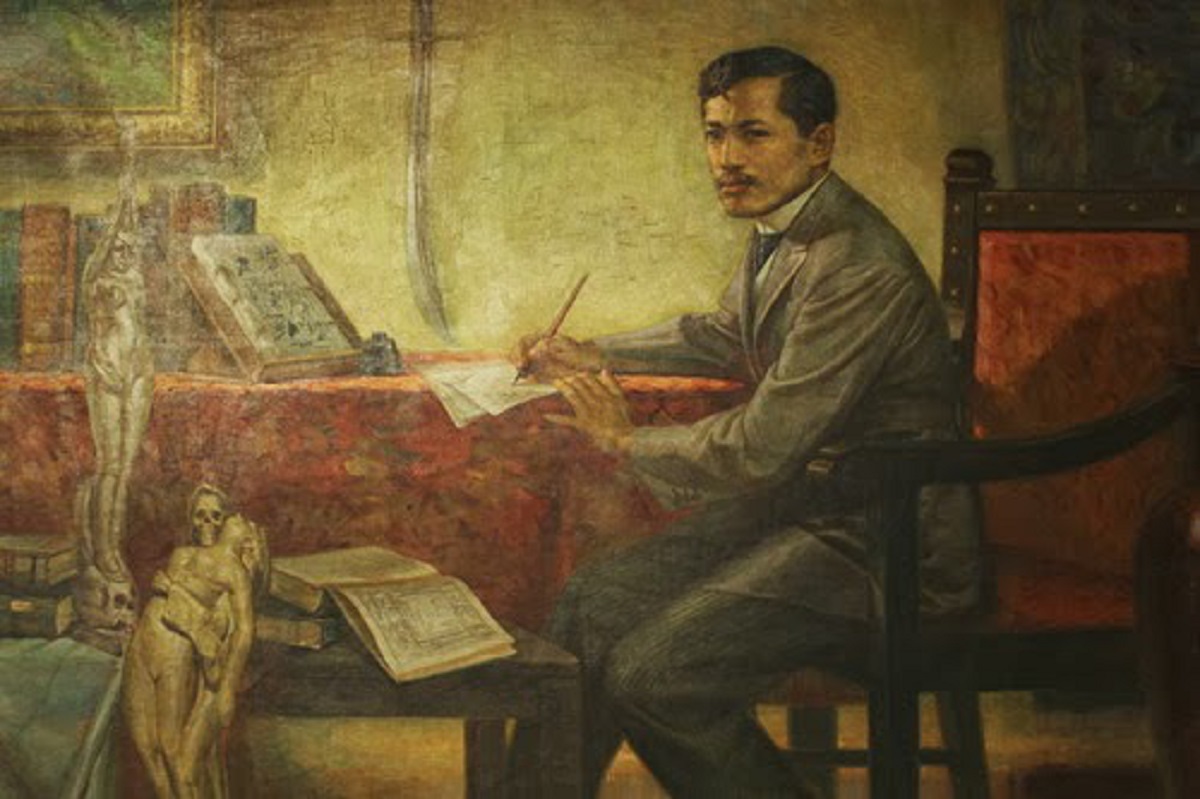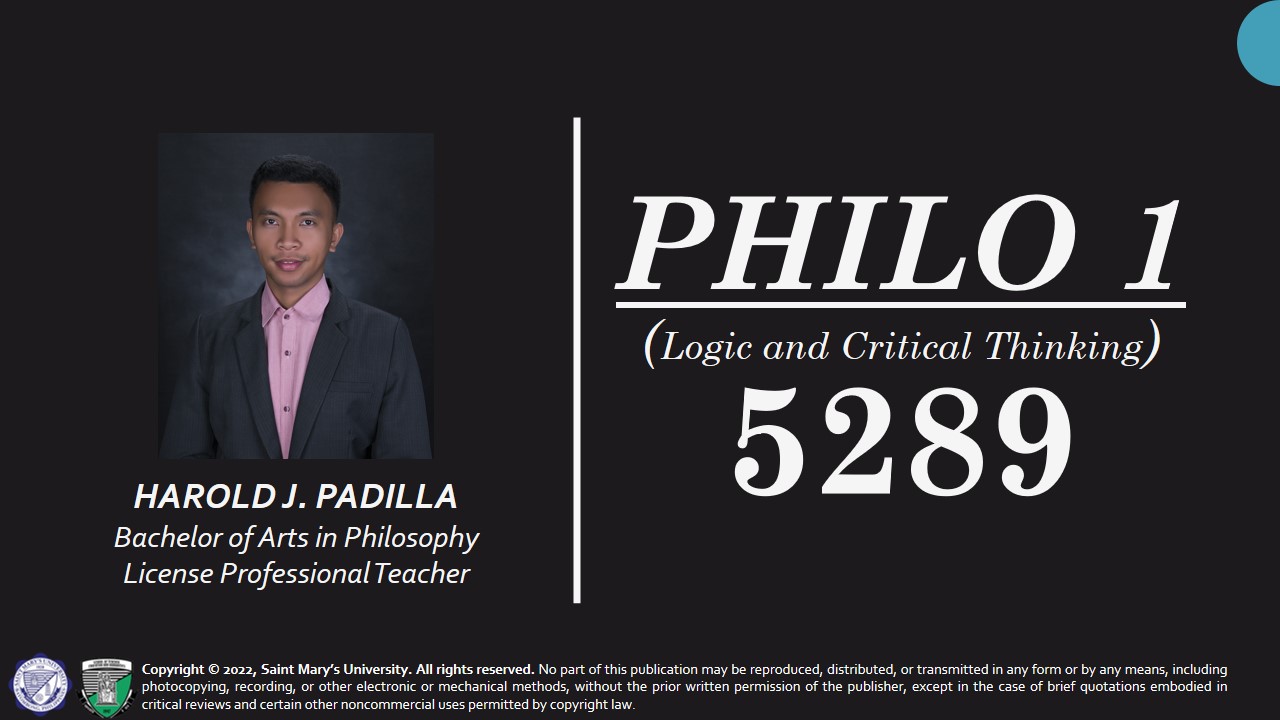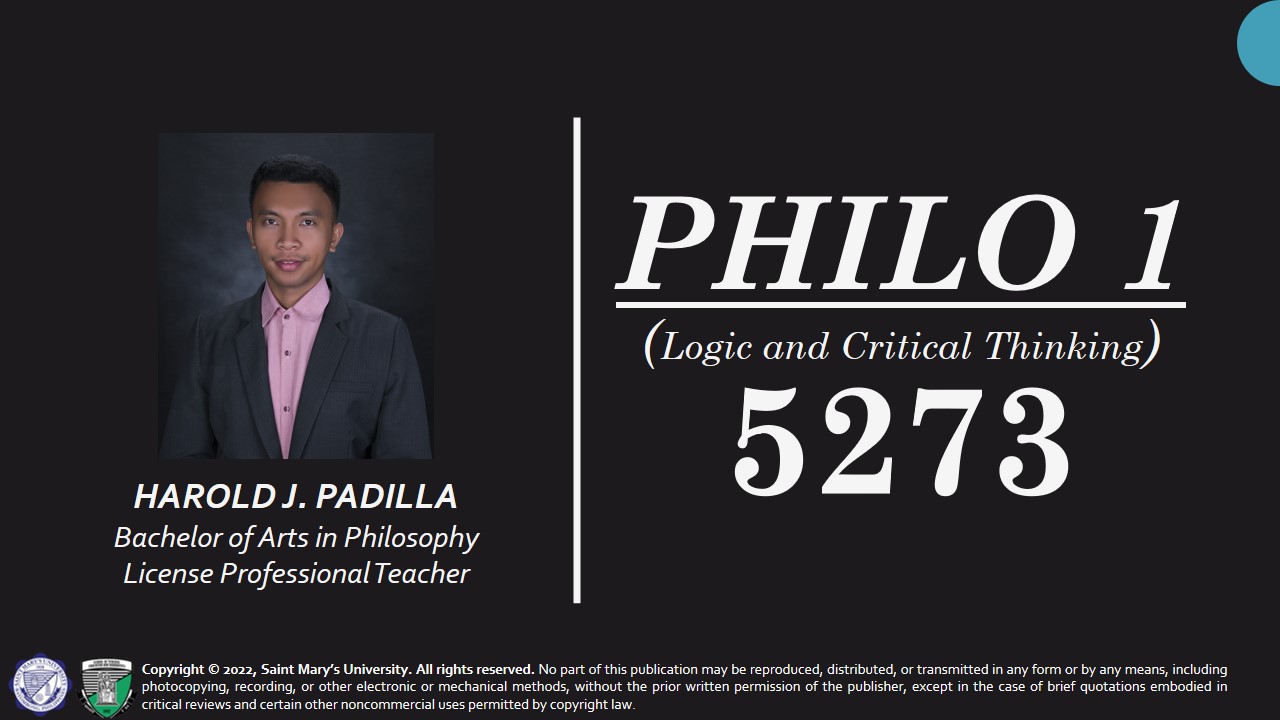Search results: 3380
This course is a study of life, works and writings of Dr. Jose Rizal, the country’s foremost national hero. Included in the course are his significant thoughts, ideas, novels, poems and essays which had a profound impact in his development as a person and as a hero and how these noble and lofty thoughts raised the national consciousness of the Filipinos. Pivotal in the lessons are discussions of his nationalistic aspirations.
- Teacher: KENNETH MASLANG
- Enrolled students: 48
The national law Republic Act 1425 mandates tertiary students to study the life works, and writings of Dr. Jose Rizal primarily to develop nationalism among young Filipinos. This course covers topics which include Rizal’s biography and his writings, particularly the novels Noli Me Tangere and El Filibusterismo, some of his poems, essays, and various literary works. In addition, this subject highlights the contributions of Rizal to the Filipino society and in the many fields. Indeed, the study of Jose Rizal’s life, works and writings will give undoubtedly life lessons and values we need to build a better nation concomitant to the aspirations of our forefathers.
- Teacher: ROWENA MENDOZA
- Enrolled students: 33
As mandated by Republic Act 1425, this course covers the life and works of the country's national hero, Jose Rizal. Among the topics covered are Rizal's biography and writings, particularly the novels Noli Me Tangere and El Filibusterismo, some of his essays, and various correspondences.
- Teacher: EDWIN ADUCA
- Enrolled students: 16
- Teacher: DAVID CABONERO
- Enrolled students: 2
This course introduces the graduate students to information science, information systems and information system analysis. It aims to make the librarians literate on the concepts of information and its importance in information centers and other information agencies, specifically on technological shifts. The importance of having information control through information infrastructure shall also be dealt with. Moreover, as necessary elements in the study of information, the communication processes shall also be included, systems in general shall likewise be touched in this subject. On information services, included are the various types of organizational units of information systems and services, acquiring and processing documentary information, scientific and technical data handling and analysis through research.
At the end of the course, the student is expected to:
1. discuss information science; trace its history; determine the relationship of information science to library science in relation to library and information system
2. distinguish information systems concepts ; name their classifications; elements & characteristics and determine the influence of information system and analysis to information science and information profession
3. determine the importance of communicating information through communication process involving information system and analysis
4. name and elucidate the kinds and components of an information system
5. differentiate types of the information system in an organization
6. demonstrate skills in flowcharting library services
7. Determine the influence of information system and analysis to information science and categories of information profession
8. Elucidate system analysis and design
9. Undertakes significant research projects that will benefit the library and the organization
- Teacher: DAVID CABONERO
- Enrolled students: 4
- Teacher: DAVID CABONERO
- Enrolled students: 2
SMU Vision
We envision SMU as a nurturing and zealous missionary Catholic educational institution animated to form communities of committed, creative, and competent Christians.
SMU Mission
We dedicate ourselves to:
1. steadfastly form and develop strongly committed persons and communities;
2. persistently challenge one another to explore and pursue relevant, innovative and breakthrough ideas
3. relentlessly pursue professional excellence as individuals and as an institution and to be locally responsive and globally competitive; and
4. joyfully animate one another as inspired by Mother Mary, to become faithful witnesses of Jesus Christ and persevere in the building of strongly united Christian communities.
Course Description
This course comprehensively covers three related retrieval information tools and library research searching aids. The graduate students will be exposed in making periodical index, index to literature collection, index to vertical file materials, bibliographies, pathfinders, and abstracts. It will also explore the creation and presentation of a thesaurus in a specialized field.
Learning Objectives
At the end of the course, the student is expected to:
1.know and understand bibliographies, bibliographic control and organization.
2. differentiate the various retrieval information tools, document surrogates and library research/searching aids-such as bibliographies, catalogs, indexes and abstracts.
3. write abstracts of thesis and articles; make bibliographies and indexing periodicals and literature collection.
4. create a mini-thesaurus in a specialized subject.
- Teacher: DAVID CABONERO
- Enrolled students: 3
SMU Vision
We envision SMU as a nurturing and zealous missionary Catholic educational institution animated to form communities of committed, creative, and competent Christians.
SMU Mission
We dedicate ourselves to:
1. steadfastly form and develop strongly committed persons and communities;
2. persistently challenge one another to explore and pursue relevant, innovative and breakthrough ideas
3. relentlessly pursue professional excellence as individuals and as an institution and to be locally responsive and globally competitive; and
4. joyfully animate one another as inspired by Mother Mary, to become faithful witnesses of Jesus Christ and persevere in the building of strongly united Christian communities.
Course Description
This course comprehensively covers three related retrieval information tools and library research searching aids. The graduate students will be exposed in making periodical index, index to literature collection, index to vertical file materials, bibliographies, pathfinders, and abstracts. It will also explore the creation and presentation of a thesaurus in a specialized field.
Learning Objectives
At the end of the course, the student is expected to:
1. know and understand bibliographies, bibliographic control, and organization.
2. differentiate the various retrieval information tools, document surrogates, and library research/searching aids-such as bibliographies, catalogs, indexes, and abstracts.
3. write abstracts of thesis and articles; make bibliographies and indexing periodicals, and literature collection.
4. create a mini-thesaurus in a specialized subject.
- Teacher: DAVID CABONERO
- Enrolled students: 6
This course is all about literature and how to read it. It is about how people of different persuasions respond to various types of literary works, and how their responses are explained in the form of theory. It deals with the application of general and specific principles of literary analysis. By extension, it is also about how to teach literature.
Like other university courses, Lit 134 is a form of inquiry. In particular, it is an inquiry into the nature, function, and study of literature. It presents certain fundamental issues and clarifies how these issues can be addressed in various ways.
- Teacher: MARIA INES MINIA
- Enrolled students: 11
- Enrolled students: No students enrolled in this course yet
- Teacher: EARL ALAN CURA
- Enrolled students: 16
- Teacher: ROGIE TABORDA
- Enrolled students: 7
- Teacher: MILAGROS CONSTANTINO
- Enrolled students: 31
- Enrolled students: No students enrolled in this course yet
- Teacher: MILAGROS CONSTANTINO
- Enrolled students: 16
- Teacher: MILAGROS CONSTANTINO
- Enrolled students: 7
- Teacher: SANTIAGO SOLIVEN
- Enrolled students: No students enrolled in this course yet
This course introduces the students to the study of formal Logic and Critical Thinking and to their significance to developing a critical attitude towards knowledge and reality and to making good judgments and wise choices and decisions. It presents the rules and principles concerning correct and valid reasoning established by Logic, which are necessary for critical thinking. It helps the students master the concepts and acquire the skills of evaluating arguments and of constructing sound arguments. It also shows the various applications of logical and critical thinking to ordinary language and in daily life. It also includes the study of material fallacies which is also very important to guide students in determining some errors in reasoning not covered by the formal rules. This course ultimately aims to sharpen the students’ critical thinking, analysis and reasoning powers.
- Teacher: Harold Padilla
- Enrolled students: 40
This course introduces the students to the study of formal Logic and Critical Thinking and to their significance to developing a critical attitude towards knowledge and reality and to making good judgments and wise choices and decisions. It presents the rules and principles concerning correct and valid reasoning established by Logic, which are necessary for critical thinking. It helps the students master the concepts and acquire the skills of evaluating arguments and of constructing sound arguments. It also shows the various applications of logical and critical thinking to ordinary language and in daily life. It also includes the study of material fallacies which is also very important to guide students in determining some errors in reasoning not covered by the formal rules. This course ultimately aims to sharpen the students’ critical thinking, analysis and reasoning powers.
- Teacher: Harold Padilla
- Enrolled students: 51
- Teacher: Felipe Nantes
- Enrolled students: 1






